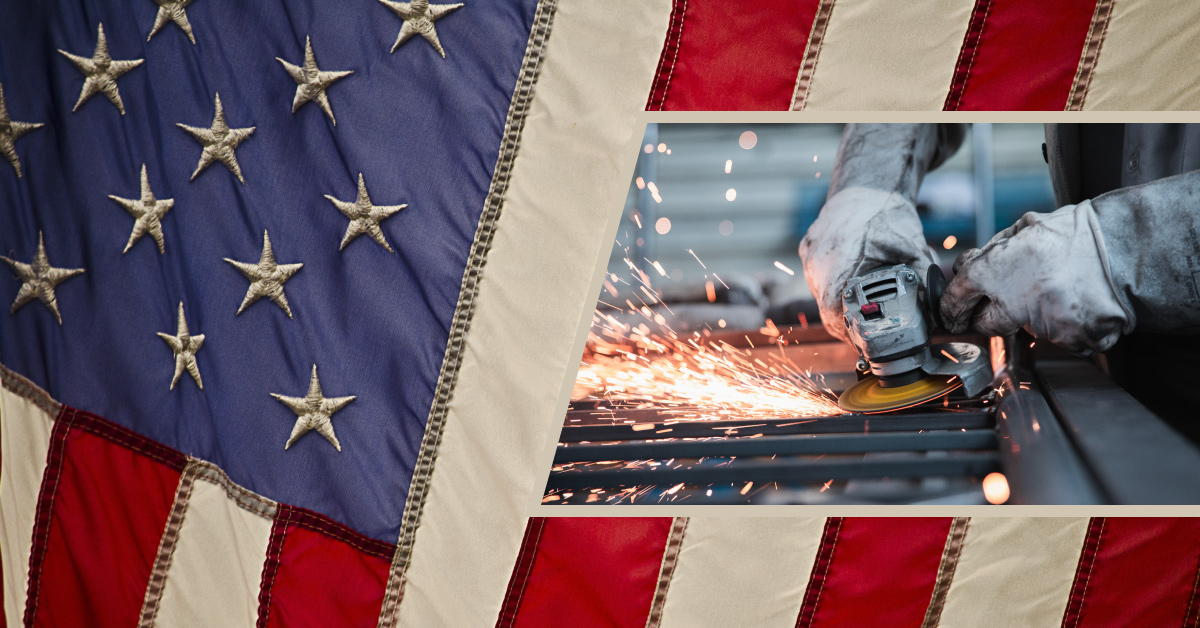That collective sigh of relief you hear is that 2020 is winding down. Let’s be honest, some words nobody ever wants to hear again include pandemic, unprecedented, protocols, and coronavirus. 2020 was a rough year for a lot of different reasons, but as always, a new year brings with it a renewed optimism and new things to look forward to. Plenty of business models were stretched to their limits in 2020, and reshoring manufacturing looks to be an obvious trend in 2021 and beyond.
Nobody was prepared for a pandemic in 2020, and one of the issues brought to light in the manufacturing world is just how many domestic brands relied heavily on China for fulfilling some, part, or nearly all of their supply chain. The economic challenges brought on by the disruption in the supply chain have forced manufacturers to change their business models in a hurry to stay competitive. What they’re learning is that reshoring manufacturing can not only help in recovery but bring about unprecedented growth.
The Reshoring Initiative was founded in 2010 and is focused on bringing manufacturing jobs back to the U.S. by helping manufacturers realize that in some cases, local production reduces their total cost of ownership of purchased parts and tooling.
Harry Moser is the founder and president of the Reshoring Initiative and is also on the Commerce Department Investment Advisory Council. Moser was recently asked what the key considerations are for reshoring pre-and-post COVID-19.
“Multi-step, multi-country manufacturing was already under stress even before the COVID-19 pandemic, which has severely disrupted the global logistics network,” Moser said. “Our intellectual understanding of trade wars during this crisis now reveals the supply chain weakness—we simply don’t make enough components on our own shores. The global supply chain as we knew it is essentially a dangerous supply chain which has lead us to the current result of death and economic disaster.”
Manufacturers Revaluate Shoring & Sourcing
The Reshoring Initiative has worked. Reshoring manufacturing—bringing imported goods or materials back to domestic production—was well on its way to becoming common practice amongst U.S.-based manufacturers before COVID-19. According to some reports, well over 700,000 jobs were brought back to the U.S. between 2010 and 2018 as a result of reshoring.
Along with the initiative, there are a number of reasons for this:
- The cost of transportation continues to rise
- Manufacturers now use advanced software programs and robotics to automate many of the processes that once required human work
- Many of the go-to offshoring countries have seen their economies strengthen in recent years, leading to an increase in wages for their citizens
- Countries in which labor remains inexpensive lack the infrastructure to support complex manufacturing operations
The pandemic of 2020 adds an exclamation point to that list.
“COVID-19 has really gotten people’s attention. It’s revealed the U.S. dependency on offshore manufacturing, especially China,” said Moser. “As the pandemic shows, we can suddenly be in the impossible position of not having enough critical supplies. That is not because we didn’t try it; it’s because we had almost no base from which to build here in the U.S.”
In addition to prompting a renewed reshoring effort, COVID-19 has also led manufacturers to reevaluate sourcing. The pandemic has caused great disruption to the global supply chain, making it more challenging for manufacturers who source from other countries to get a hold of materials.
An Uptick in Reshoring Manufacturing
Establishing solid partnerships with domestic manufacturers makes all the sense in the world heading into 2021 and beyond. As Moser says, “The supply chain math is obvious, and developing partnerships is the new reshoring. Customers, in most cases, are willing to pay a premium for on-time, as-promised delivery commitments. The goal is to convince companies to do the math and decide what to re-shore now.”
Look for both reshoring and near-sourcing (also known as local sourcing, is the process by which a business brings operations closer to where its finished product is sold; in manufacturing, it typically refers to sourcing raw materials from U.S. suppliers) to be leading trends in 2021, as manufacturers try to reduce or eliminate dependence on foreign materials. These trends will not only help manufacturers remain resilient to future COVID-related disruptions they will also provide a much-needed boost to the U.S. economy.
Cass Precision Machining has a long history as an established and trusted U.S.-based manufacturer committed to delivering on-time, high-quality machined parts. We welcome the opportunity to help your organization establish a reliable and consistent partnership. Please don’t hesitate to contact us at 763-535-0501 to see if we can service your needs!



